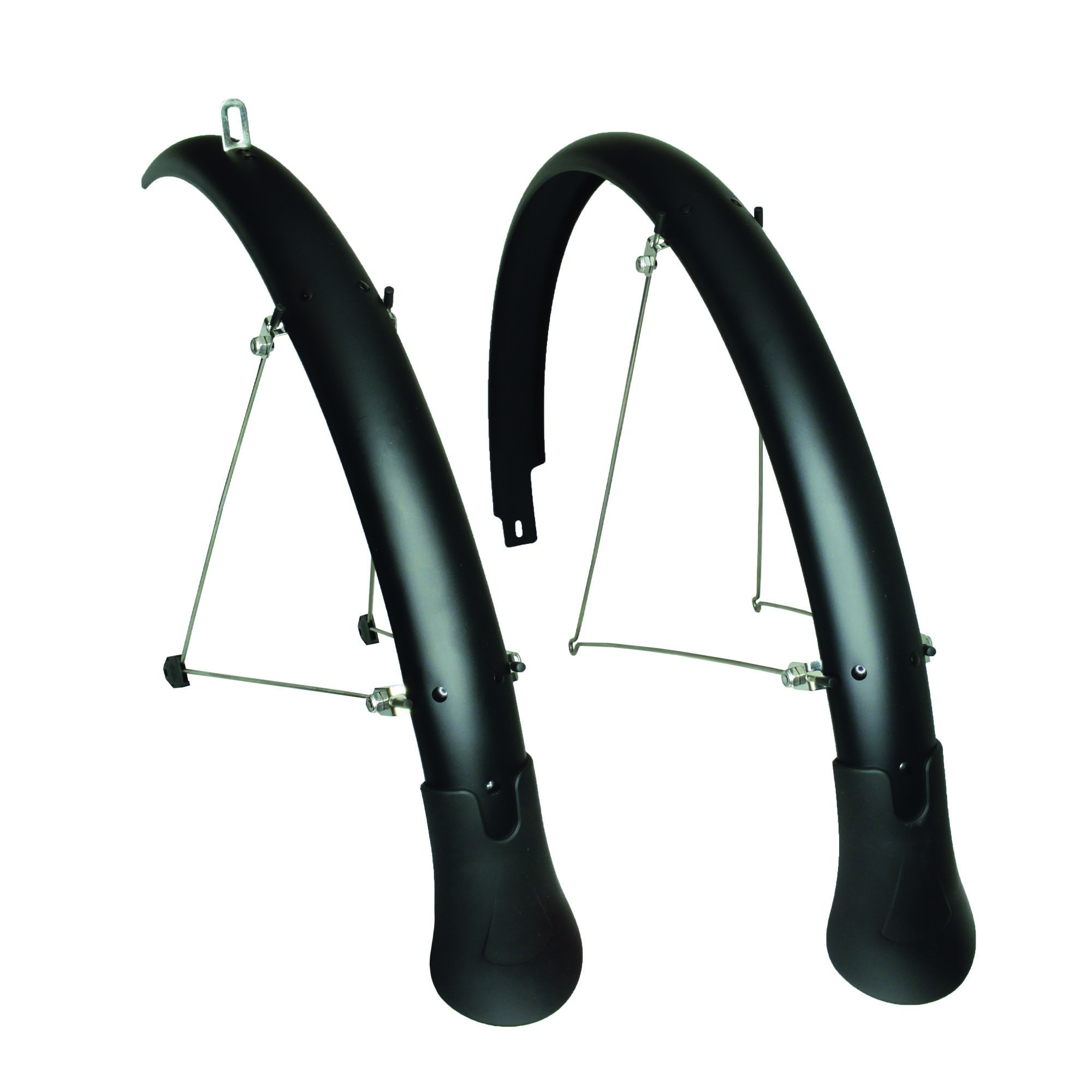Planet Bike offering recycled polycarbonate bike fenders – Bicycle Retailer & Industry News

Planet Bike Expands Eco-Friendly Bicycle Fender Lineup
Introduction
Planet Bike, based in Madison, Wisconsin, has introduced new recycled polycarbonate full bike fenders designed specifically for commuters. This expansion replaces their previous full-wrap fender offerings and aligns with global efforts to promote sustainable consumption and production, directly supporting the United Nations Sustainable Development Goals (SDGs), particularly SDG 12 (Responsible Consumption and Production) and SDG 13 (Climate Action).
Product Details and Sustainability Features
-
Full Circle Fenders
- Material: TUV-certified recycled polycarbonate blades made from recycled water bottles.
- Sizes Available:
- 700c x 45mm (maximum tire size 700c x 35mm)
- 26-inch x 60mm (maximum tire size 26 x 1.6)
- Price: MSRP $54.99 each.
- SDG Alignment: Promotes recycling and waste reduction, supporting SDG 12 and SDG 15 (Life on Land) by reducing plastic pollution.
-
ReCycle Fenders
- Material: TUV-certified recycled polycarbonate blades.
- Features: Includes a 40mm mud flap for enhanced protection.
- Sizes Available:
- 700c x 45mm (maximum tire size 700c x 35mm)
- 26-inch with maximum tire size 1.9 inches
- Price: MSRP $64.99 each.
- SDG Alignment: Encourages sustainable product design and innovation, supporting SDG 9 (Industry, Innovation and Infrastructure) and SDG 12.
-
Cascadia Recycled Fenders
- Material: 36% CRS-certified recycled polycarbonate blades with 100mm mud flaps.
- Sizes Available:
- 27.5 x 60mm (maximum tire size 27.5 x 1.9)
- 700c x 55mm (maximum tire size 700c x 45mm)
- Price: MSRP $84.99 each.
- SDG Alignment: Utilizes certified recycled materials to reduce environmental impact, supporting SDG 12 and SDG 13.
Conclusion
Planet Bike’s introduction of recycled polycarbonate bike fenders demonstrates a commitment to sustainable product development and environmental stewardship. By incorporating recycled materials and offering durable, commuter-friendly products, the company contributes to achieving multiple Sustainable Development Goals, including responsible consumption, innovation, and climate action.
1. Sustainable Development Goals (SDGs) Addressed or Connected
- SDG 12: Responsible Consumption and Production
- The article discusses the use of recycled materials (recycled polycarbonate from water bottles) in manufacturing bike fenders, promoting sustainable production practices.
- SDG 13: Climate Action
- By using recycled materials, the company reduces waste and the environmental impact associated with producing new raw materials, contributing to climate action.
- SDG 11: Sustainable Cities and Communities
- The products are designed for commuters, encouraging sustainable transportation options like cycling, which supports sustainable urban mobility.
2. Specific Targets Under Those SDGs
- SDG 12: Responsible Consumption and Production
- Target 12.5: By 2030, substantially reduce waste generation through prevention, reduction, recycling, and reuse.
- Target 12.8: Ensure that people everywhere have the relevant information and awareness for sustainable development and lifestyles in harmony with nature.
- SDG 13: Climate Action
- Target 13.3: Improve education, awareness-raising, and human and institutional capacity on climate change mitigation, adaptation, impact reduction, and early warning.
- SDG 11: Sustainable Cities and Communities
- Target 11.2: By 2030, provide access to safe, affordable, accessible, and sustainable transport systems for all.
3. Indicators Mentioned or Implied to Measure Progress
- SDG 12 Indicators
- Indicator 12.5.1: National recycling rate, tons of material recycled.
- Implied measurement of the percentage of recycled materials used in products (e.g., 36% CRS-certified recycled polycarbonate blades).
- SDG 13 Indicators
- Indicator 13.3.1: Number of countries that have integrated mitigation, adaptation, impact reduction, and early warning into primary, secondary, and tertiary curricula.
- Implied progress through corporate adoption of eco-friendly products contributing to climate mitigation.
- SDG 11 Indicators
- Indicator 11.2.1: Proportion of population that has convenient access to public transport, or sustainable transport options like cycling.
- Implied increase in sustainable commuting options through availability of eco-friendly bike accessories.
4. Table of SDGs, Targets, and Indicators
| SDGs | Targets | Indicators |
|---|---|---|
| SDG 12: Responsible Consumption and Production |
|
|
| SDG 13: Climate Action |
|
|
| SDG 11: Sustainable Cities and Communities |
|
|
Source: bicycleretailer.com








